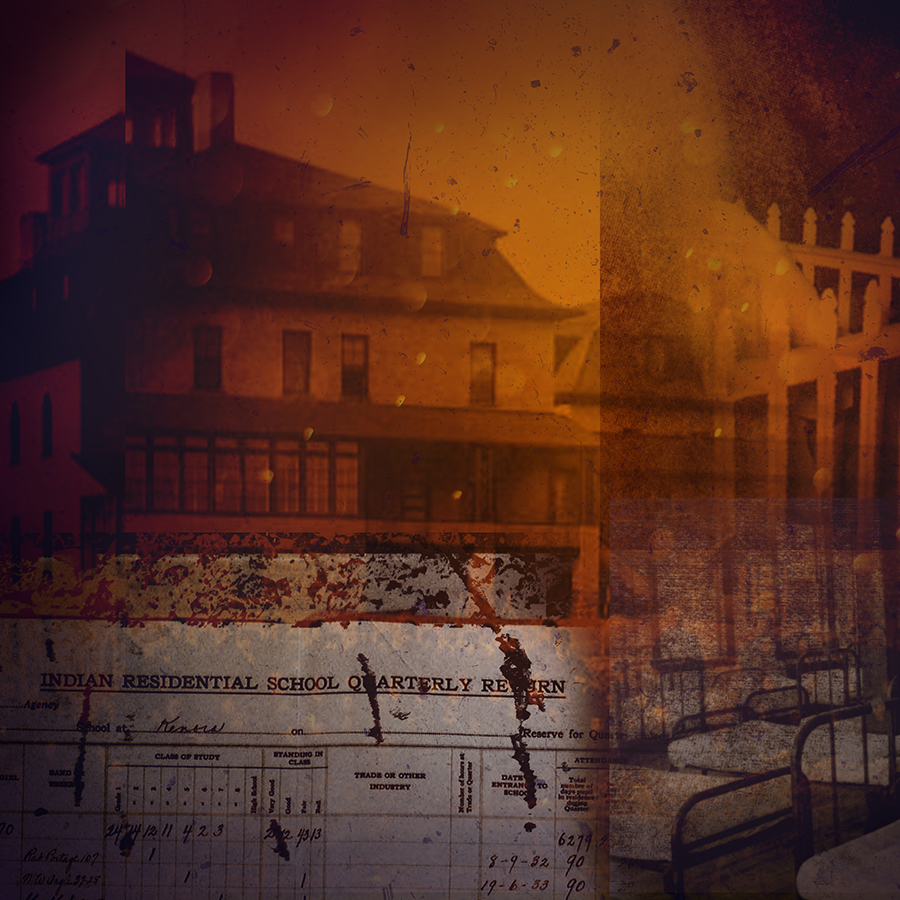
The only way forward is together.
Thursday September 30th, 2021 is Canada’s first National Day for Truth and Reconciliation. The day is a federal statutory holiday and will apply to federally regulated workers. Some, but not all provinces and territories are also observing the holiday with a day off for provincial and territorial workers and schools.
The day honours the lost children and Survivors of residential schools, their families and communities. Indigenous leaders have called on Indigenous and non-Indigenous people in the country to mark it with solemn reflection. The Honourable Murray Sinclair or Mizanay Gheezhik said the day should be about making sure Canadians don’t forget what the schools did to Indigenous children and their families. He compared it to the way we mark Remembrance Day in Canada.
“It’s not just about marching and dressing up and getting some time off from school [or] work,” he said “if you fully understand what… ceremony is about, you won’t prevent yourself from crying.”
The most important goal of the Truth and Reconciliation Commission, he said, wasn’t just uncovering what happened at residential schools, but “to make it part of our national memory”, so that it cannot be forgotten. “that’s why legislating it, I think, was important, because it forces you to acknowledge that this day, something happened.”
Sinclair said that “education is the key to reconciliation.” September 30th marks a day when we should all stand for reconciliation.
You may be asking yourself, “what is reconciliation, who is responsible for it, and what can I do?”
The TRC definition of reconciliation is:
“… Reconciliation is about establishing and maintaining a mutually respectful relationship between Aboriginal and non-Aboriginal peoples in this country. In order for that to happen, there has to be awareness of the past, an acknowledgement of the harm that has been inflicted, atonement for the causes, and action to change behaviour.” [1]
To further clarify, let’s look at what reconciliation is and is not as compiled by Bob Joseph of Indigenous Corporate Training, Inc.
Reconciliation is:
- Critical
- Complex
- Multifaceted
- Continuous
- A process
- About working towards solidarity as a society and country
- The responsibility of every Canadian
- Honouring treaties
- Acknowledging and respecting Indigenous rights and title
- Acknowledging and letting go of negative perceptions and stereotypes
- Acknowledging the past and ensuring that history never repeats
- Learning about Indigenous history
- Recognizing the inter-generational impacts of colonization, attempts at assimilation, and cultural genocide
- Recognizing the critical roles, Indigenous Peoples have held in the creation of Canada, their contributions to world wars to protect Canada
- Taking responsibility as a person, a parent, an employee, an employer to:
- Never utter, accept, or ignore a racist comment
- Never utter, accept, or ignore a statement that includes a stereotype about Indigenous Peoples
- Respect for:
- Indigenous individuals
- Indigenous beliefs, cultures, traditions, world-views, challenges, and goals
- Recognition and support of the deep connections Indigenous Peoples have to the land
- Supporting the reclamation of identity, language, culture, and nationhood
- Healing for all Canadians
- Good people doing good things
- Building relationships
- Never giving up despite setbacks
- Humility
- An opportunity to move forward
- A commitment to taking a role and assuming responsibility in working towards a better future for every Canadian
Reconciliation is not:
- A trend
- A single gesture, action, or statement
- A box to be ticked
- About blame
- About guilt
- About the loss of rights for non-Indigenous Canadians
- Someone else’s responsibility
But where do I start?
You can begin your learning journey by Reading, Listening and Watching. Discover books and resources that share our culture, histories, lands and languages. Listen to the experiences of storytelling through podcasts and see visuals and movies from Indigenous creatives. Below is a list of some resources that can get you started on your journey.
Read:
Honouring the Truth, Reconciling for the Future. Summary of the Final Report of the Truth and Reconciliation Commission of Canada (PDF download)
https://publications.gc.ca/site/eng/9.800288/publication.html
94 Calls to Action (PDF Download)
https://s3.documentcloud.org/documents/2091412/trc-calls-to-action.pdf
46 Articles of the United Nations Declaration on the Rights of Indigenous Peoples (UNDRIP) (PDF Download)
https://www.un.org/development/desa/indigenouspeoples/declaration-on-the-rights-of-indigenous-peoples.html
Indigenous Peoples Atlas of Canada
https://indigenouspeoplesatlasofcanada.ca
The Canadian Encyclopaedia: Indigenous Peoples
https://www.thecanadianencyclopedia.ca/en/collection/aboriginal-peoples
The National Centre for Truth and Reconciliation: Reports
https://nctr.ca/records/reports
Truth and Reconciliation Calls to Action booklets
https://nctr.ca/shop/calls-to-action-booklet
Listen
MediaINDIGENA: Indigenous Current Affairs by Rick Harp
https://mediaindigena.com/rick-harp
Histórica Canada: Residential Schools hosted by Shaneen Robinson-https://thecanadianencyclopedia.ca/en/article/residential-schools-podcast-series
Think Indigenous by Ryan McMahon
https://thinkindigenous.libsyn.com
Telling Our Twisted Histories: CBC Podcast
https://www.cbc.ca/listen/cbc-podcasts/906-telling-our-twisted-histories
Watch
Indigenous Cinema: National Film Board of Canada
https://www.nfb.ca/indigenous-cinema/?&film_lang=en&sort=year:desc,title&year_min=1939&year_max=2021
CBC Docs: Inendi
https://www.youtube.com/watch?v=ToUVHjr1xK0
Indian Horse the film (Trigger Warning)
https://www.indianhorse.ca/en/film
We Were Children (Trigger Warning)
https://gem.cbc.ca/media/we-were-children/s175e175
These are just a few of the resources that are available and I encourage you to share this information with your family, friends, and colleagues. I also encourage you to develop your own list and begin discussing how you can practice reconciliation in your daily lives. For the journey of a thousand miles begins with one step.
“Together, Canadians must do more than just talk about reconciliation; we must learn how to practise reconciliation in our everyday lives—within ourselves and our families, and in our communities, governments, places of worship, schools, and workplaces. To do so constructively, Canadians must remain committed to the ongoing work of establishing and maintaining respectful relationships.”
– The Truth and Reconciliation Commission of Canada, Final Report of the Truth and Reconciliation Commission of Canada, Volume One: Summary: Honouring the Truth, Reconciling for the Future.
Mark Rutledge, CGD
National President
Graphic Designers of Canada
[1] Honouring the Truth, Reconciling for the Future Summary of the Final Report of the Truth and Reconciliation Commission of Canada, The Truth and Reconciliation Commission of Canada, 2015, p. 6
—
Looking to contribute to the national conversation and elevate the Canadian design communications profession? Submit your article to our editorial team: designcurrency@descan.ca